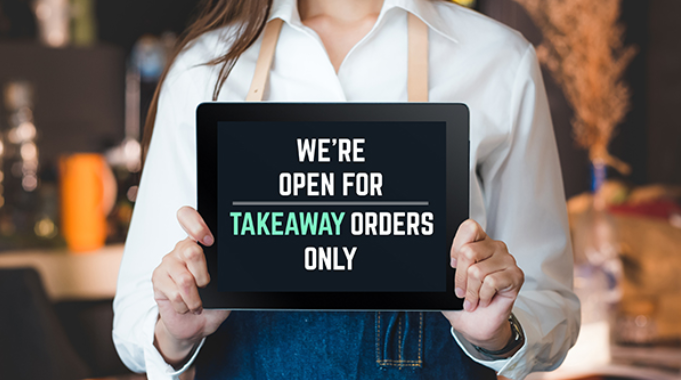The COVID-19 pandemic is rapidly spreading, with fresh information arriving every minute. Many small business owners and startups are confused about what steps to take to limit risk, protect staff, and help consumers as this scenario continues to evolve.
Not just that, the Covid-19 pandemic has affected both consumers and businesses. With this fundamental change, a so-called "new normal” has become a new technique to market to clients.
Take advantage of these 5 tips as well as small business planning recommendations to keep your firm healthy throughout the coronavirus outbreak and make it grow back up when this pandemic is over.
1. Put your customer’s mind at rest
We all know that customers should always be the number one priority. Without them, your startup business can never grow until the day it is today. Therefore, it is tremendously important to reassure your clients. You need to convince your customers that you're there for them and that your company isn't going anywhere in this time of uncertainty.

So, how do you incorporate consumer reassurance into your marketing strategies? Keep them frequently updated on how your small businesses are dealing with this situation and make it clear that you are going nowhere but always there to support them when they need. There are several ways you can inform your customers, which is by:
Send out email notifications and updates
Post on social media regularly
Add some more information to customer accounts
Start or join a discussion
Make use of paid adverts or sponsored postings.
Create an online competition (e.g., share for a chance to win X)
Keep your consumers up to date with store announcements
Promote limited-time or unique offers
During this up and down moment, it is critical to remind your customer that “everything would be fine”. By doing this, your clients will very much appreciate what you are doing and your sensitivity to the situation. You are showing them that you care about them and their benefits.
Make sure to maintain a calm tone with a positive message and applicable language while reassuring your customers. Also, ensure that they know how to reach you if they have any questions.
2. Keep the business open
The most difficult challenge that small businesses face today is keeping their doors open. For startups, this will be a particularly difficult time.
According to Yelp's Economic Impact Report, released in mid-September, over 60% of companies that shuttered during the crisis would not reopen. So, it's time to set aside your lofty ambitions of being a multibillion-dollar corporation with world-class products. It doesn't matter if you don't survive

This is when “Cash is King” once again kicks in. Startups rarely fail due to a lack of ideas. They perish because they are cash-strapped. Put together a budgeting strategy. This plan should be aggressive. Early action will have a much greater impact than later action.
Have at least a year's worth of cash on hand, as this is what you'll most likely require. Even if the COVID-19 situation is resolved much sooner, the chaos it has created will linger, especially for startups.
3. Adapt and be creative
Small enterprises must be resourceful to survive a crisis. This is not the time to revert to your previous marketing methods amid the coronavirus. It's time to take chances and be creative with your marketing strategies.

For example, many businesses and restaurants have switched to curbside pickup and contactless deliveries. They also provide culinary tutorials and recipes to assist customers in getting the most out of their indoor time.
For startups, promote unique offers such as DIY kits and care packages to entice visitors to visit your store. Customers can also take advantage of virtual possibilities such as online classes, meetings, and displays.
Have fun with whatever creative path you decide to choose. Consider holding a brainstorming session to consider how you can attract clients and persuade them to spend their hard-earned money during these difficult times.
4. Improve your online presence
Chinese corporations, which were forced to face the reality of coronavirus shutdowns before most American firms, offer a strategy for surviving the storm. As shops closed and employees remained on the job, skilled business owners altered their sales techniques to prevent significant losses.

Lin Qingxuan, for example, closed 40 percent of its storefronts in Wuhan, but the brand's 100+ beauty advisers used digital channels like WeChat to engage clients digitally and improve online sales. According to Harvard Business Review, “as a result, its sales in Wuhan increased by 200 percent over the previous year's sales.”
Another source of information also showed that the coronavirus has caused a 50% to 70% increase in internet hits. Why not take advantage of the fact that so many people spend their free time online? You may increase your company's web presence by doing the following:
Make your company's website mobile-friendly.
Create useful material and conduct SEO research.
Use keywords on your website's pages.
Participate in online forums and communities.
Enhance the user experience
5. Looking for new business opportunities
In-person meetings, conferences, and referrals are the primary sources of new business for Ginger Jones, who operates WebPunch, an online reputation management software company.

She's worried about how to build meaningful relationships now that conferences and travel have been halted. “We're doing some fun things like cooking lessons with clients and prospects, webinar series, and other stuff,” Jones said. Because everyone is doing these types of activities, breaking through the ‘digital' noise to prospects is difficult.
However, there is a good chance that small businesses should use the extra time they have now to consider what can be done and how to interact with others on digital platforms. Use your phone, use your Instagram, and speak with folks who have contacted you over social media. Right now, people are a little bit more prepared to have these dialogues.
Conclusion
It's difficult to predict what the country and market will look like after this. But if your business is alive and well, there will be plenty of opportunities. Keep an eye out for it because none of us knows when it will happen.
Now is not the time to put your marketing activities on hold. It's your chance to be more strategic than ever before, to put yourself in your customers' shoes, and to promote them more effectively. As with almost all things in life, this too will pass.























